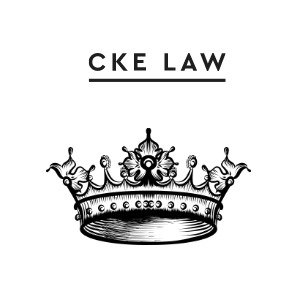Best Trusts Lawyers in Manchester
Share your needs with us, get contacted by law firms.
Free. Takes 2 min.
List of the best lawyers in Manchester, United Kingdom
About Trusts Law in Manchester, United Kingdom
The legal system of Trusts in Manchester, UK, operates under the broad framework of English Trust Law. Trusts involve an arrangement in which one party (the 'trustee') holds the title to a property or assets for the benefit of another person (known as the 'beneficiary'). This framework is a long-standing part of British law and serves various purposes, from asset protection to estate planning, and often involves complex legal and financial regulations.
Why You May Need a Lawyer
Managing a Trust comes with multiple legal responsibilities that can prove overwhelming for many people. A lawyer can assist decisions about establishing, modifying, or terminating a Trust. Lawyers can also help ensure tax compliance, help manage distribution of assets among beneficiaries, advise on trustee duties and obligations, and resolve any disputes that arise between trustees and beneficiaries.
Local Laws Overview
Trusts in Manchester operate under the overarching Trustee Act 2000 and the general common law of the UK. This legislation sets out the duties, powers, and responsibilities of trustees, including the requirement to act in the best interest of the beneficiaries. A key aspect of local Trust Law lies in the five main types of Trusts that can be created: Bare Trusts, Interest in Possession Trusts, Discretionary Trusts, Accumulation Trusts, and Mixed Trusts, each with its unique legal requirements and implications.
Frequently Asked Questions
What are the main types of Trusts in Manchester, UK?
There are mainly five types of Trusts which include: Bare Trusts, Interest in Possession Trusts, Discretionary Trusts, Accumulation Trusts, and Mixed Trusts. The type of Trust to set up depends on the specific needs of the person setting up the Trust (known as the 'settlor').
Who can be a trustee in Manchester?
Anyone aged 18 or over can be a trustee. They must be capable of holding property responsibly and making important legal decisions.
Are trustees remunerated for their services?
Unless the Trust deed allows payment, or all the beneficiaries agree to payment, trustees cannot usually charge for their services. However, trustees are allowed to reclaim expenses they incur as part of their trustee duties.
Can a Trust deed be changed after it's set up?
Yes, but it depends on the provisions laid out in the Trust instrument. In some cases, the Court’s permission may be required.
What happens if a trustee fails in their duties?
If a trustee fails to perform their duties adequately, they could be held personally liable for any loss to the Trust, or they could be replaced by the settlor or the other trustees, depending on the terms of the Trust document.
Additional Resources
Individuals seeking advice about trusts can consult the Trust Law section of the GOV.UK website, The Law Society, and the Chartered Institute of Taxation. These platforms offer valuable information on different aspects of Trust Law and can direct individuals to experienced lawyers.
Next Steps
If you need legal assistance related to Trusts, it's highly recommended to consult with a lawyer specialising in the field of Trust Law. Key steps to follow include gathering all documentation related to the Trust, clearly identifying your objective (establishing, managing, or disputing a Trust), and seeking a consultation with an experienced lawyer to discuss the best course of action.
Lawzana helps you find the best lawyers and law firms in Manchester through a curated and pre-screened list of qualified legal professionals. Our platform offers rankings and detailed profiles of attorneys and law firms, allowing you to compare based on practice areas, including Trusts, experience, and client feedback.
Each profile includes a description of the firm's areas of practice, client reviews, team members and partners, year of establishment, spoken languages, office locations, contact information, social media presence, and any published articles or resources. Most firms on our platform speak English and are experienced in both local and international legal matters.
Get a quote from top-rated law firms in Manchester, United Kingdom — quickly, securely, and without unnecessary hassle.
Disclaimer:
The information provided on this page is for general informational purposes only and does not constitute legal advice. While we strive to ensure the accuracy and relevance of the content, legal information may change over time, and interpretations of the law can vary. You should always consult with a qualified legal professional for advice specific to your situation.
We disclaim all liability for actions taken or not taken based on the content of this page. If you believe any information is incorrect or outdated, please contact us, and we will review and update it where appropriate.








